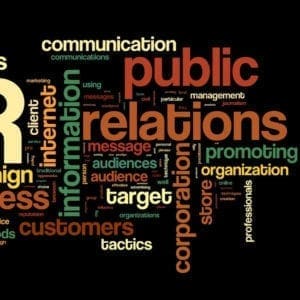I t all ads up…
t all ads up…
According to a recent report by Pagefair, there was an estimated $21.8bn lost in ad revenue in 2015 alone due to ad blocking. And with more and more people choosing to block online ads, what does the future hold for hotels across the APAC region wishing to reach new customers?
To answer this question, it is necessary to look at the reason for the existence of ad blockers. The truth is, advertising brings money. So, a lot of websites started overloading their pages with advertising. The whole online ad world became noisy, intrusive and, frankly, irritating. It’s like going to the cinema, and the advertising slots are as long as the film itself, and worse, they occur intermittently disrupting the film with unrelated content.
This means hotel marketers across the APAC region are going to have to rethink their advertising strategy. Instead of being part of the unwelcome noise, advertising today should be about re-establishing contact with a hotel’s target audience. People don’t mind seeing accommodation adverts if they are relevant to them or their lifestyle. What they don’t appreciate is content they can’t or don’t want to relate toÑfor instance, promotions for luxury accommodation appearing on a youth-orientated pop-culture website.
To truly cut it in the online advertising world today, hotels need to be thinking about how they make their content catchy and relevant from the outset. That means completely reassessing their digital strategies to get to know their customers down to the brands they love, the places they go, even to the sports team they support. It’s all relevant. Digital marketers in the hotel sector have to start with Òwhere do I get information about customers that I can use to personalize their experience and use as an input to my digital strategy?Ó
This brings a big opportunity for smart hotel marketers that know how to leverage data brokerage platforms and the customer data management platforms to stand out from the crowd even more. Because, if everything else is blocked and only they are getting through, their property (or hotel brand) is going to get more visibility.
Breaking it down
Segmentation is vital. Unfortunately, many hotel marketers still segment by age, gender, income, etc.Ñdemographic data that isn’t relevant anymore. It doesn’t matter if people are 16 or 65, they may still like the same Facebook pages. So they should think about how they segment their audience, think about what data they are using to identify if a certain person falls into that segment or not. They cannot rely on a single source for data anymore.
Many ad blockers have their own business model. It is not always a moral crusade to protect the consumer from unwelcome content. Many offer a whitelisting service that some have compared to a protection racket. If businesses pay enough money, they permit their ad to get through. But because many websites rely on paid advertising as a business model, they are preventing people that have ad blocking software from seeing any content on their site. If visitors want to have access to their content, they have to switch the ad blocker off first.
Speak to me
Some hotel brands are not afraid of ad blocking. They know that if they provide content that the audience wants to consume, then the audience will not block them. It’s important to remember that online advertising is not the only way to get content to a relevant audience. A huge trend, especially with Generation Z, is for using messenger apps, such as WhatsApp or Facebook Messenger. Hotels can reach out to their audiences through these apps. Normally the messenger app asks when someone is creating their account what their hobbies are, etc. Based on that, the user agrees to receive third-party ads as long as they are relevant to them based on the criteria they have specified. Those ads do not have to be in the form of a banner. For example, when a user is chatting with their friend about a destination for a holiday they are planning on spending their holidays in, using artificial intelligence, the bot can then deliver a message to them in that chat telling them that it can see what they are talking about and ask them whether they have heard that there is a sale on hotels within that area. The bot is adding something that is relevant to both the user and the chat. The bot recommends hotels not only from what it knows about that person from their social profile but also based on the context of the discussion they are having at that precise moment in time.
Whatever the general opinion on ad blocking is, the positive outcome is that it is forcing advertisers to rethink the way in which they approach their content. It is no longer justifiable to bombard audiences with irrelevant ads that merely infuriate the recipient. It is about learning that to outsmart the ad blockers, hotels must communicate to their potential customers on a wavelength that connects with them on a personal level. After all, if advertising is smart and engaging, people will welcome it more. And if that means that hotels are more creative in the way they tell their stories, that in itself has to be a good thing.
By Duncan Hendy, Content Strategy Manager at Kentico Software



















